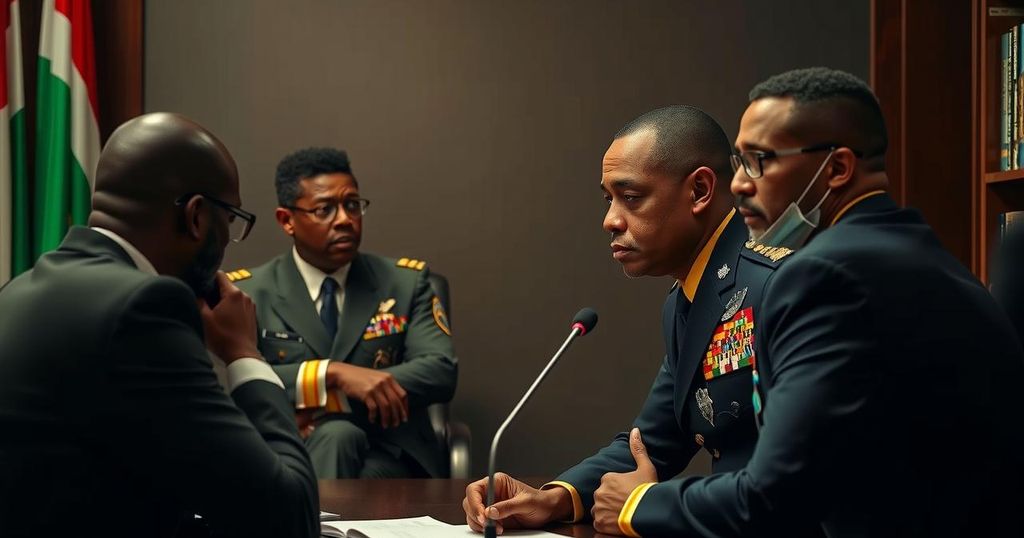President Salva Kiir of South Sudan held an emergency meeting with security leaders after a shootout at the home of former spy chief Akol Koor, dismissed amid coup rumors. The violence, attributed to a security misunderstanding, resulted in four fatalities. Concerns are mounting over the country’s stability, particularly with the recent postponement of elections. The incident underscores the challenges of governance in a nation still recovering from civil war.
On Friday, South Sudan’s President Salva Kiir convened an urgent meeting with top security officials following a violent incident at the residence of Akol Koor, a former intelligence chief dismissed in early October amid allegations of a coup attempt. The shootout, which occurred on Thursday night in Juba, raised alarms regarding the stability of South Sudan, a nation already grappling with political turmoil and economic distress.
The incident, characterized by gunfire at Koor’s home, ended after approximately one hour, leading to the affirmation that it stemmed from a “misunderstanding” among security personnel attempting to relocate Koor, who agreed to move with limited family members and assured security. Tragically, the confrontation resulted in the deaths of four individuals, including two civilians and two soldiers.
Following the meeting, South Sudan People’s Defence Forces spokesman Lul Ruai Koang clarified that while Koor was receiving military protection at his new location, he was not under detention. Speculation regarding Koor’s flight to a United Nations compound was dismissed by Koang, who emphasized the importance of remaining vigilant due to ongoing tensions in the area.
Koor’s dismissal occurred shortly before Kiir postponed the first elections, further escalating concerns among the international community regarding the country’s political progress. The South Sudan conflict has its roots in the violent civil strife between Kiir and his former deputy, Riek Machar, which caused significant loss of life and widespread displacement. The recent violence accentuates the precarious nature of governance and security in South Sudan as it continues to recover from years of conflict.
South Sudan, the youngest nation in the world, has faced complex political challenges since its independence in 2011. The dismissal of Akol Koor, a key security figure, happened amidst speculation of a coup, reflecting underlying rivalries and ongoing ethnic tensions within the government. The shootout incident underscores the volatile security situation as the nation struggles with restoring stability, addressing economic grievances, and the pressing need for democratic progress, including the scheduled elections, which have once again been delayed by President Kiir. This context is crucial to understanding the gravity of the recent events.
The recent shootout at Akol Koor’s residence highlights the fragile security situation in South Sudan amidst ongoing political upheaval. The urgent meeting convened by President Kiir demonstrates the government’s attempt to manage escalating tensions and reassert control. The call for enhanced vigilance among the populace is a testament to the overarching instability faced by the nation, further complicated by the impending election delay and historical issues stemming from a protracted civil conflict.
Original Source: www.iosconews.com






